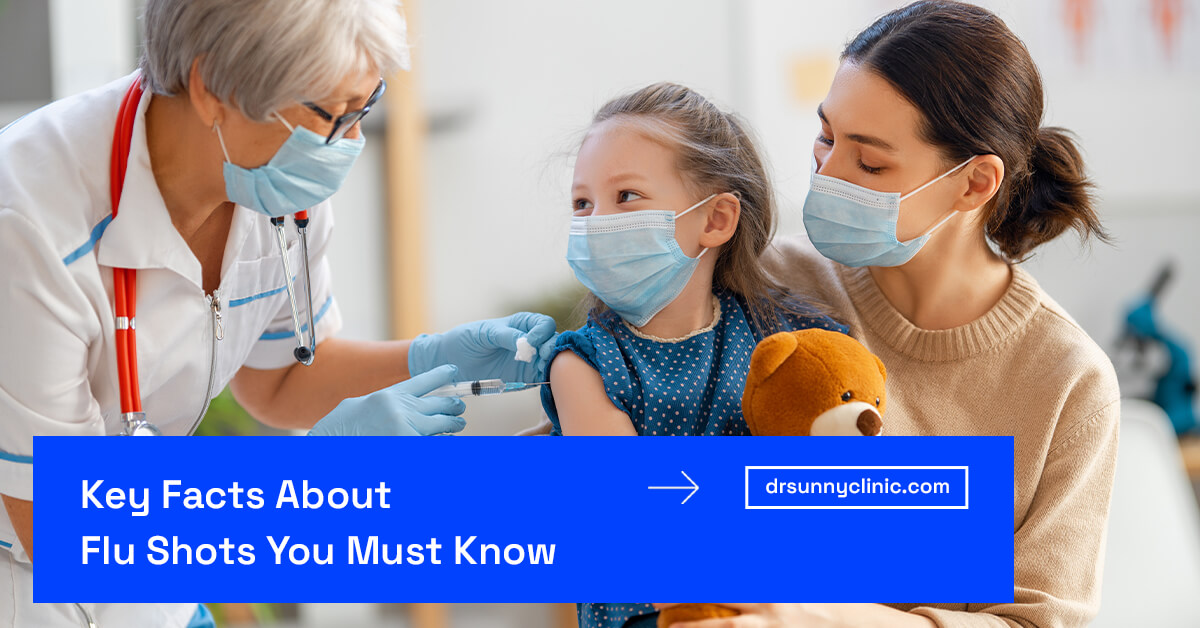
Key Facts About Flu Shots You Must Know
As we all know flu is a contagious respiratory illness that can cause fever, chills, coughing, fatigue and body aches. The virus is a cause of concern as it can easily spread rapidly in schools and workplaces. Few people can recover from flu in about one or two weeks without developing any complications. But you need to be extra cautious if you have young kids or senior citizens above 65 years of age at your home. They are prone to develop flu-related complications that can even prove fatal.
You may be getting your seasonal flu shots once a year but you may not know everything about the illness to help you prepare better for the flu season. Here are five facts that you must know about the flu vaccine:
It takes 2 weeks for flu vaccine to work
Flu vaccines trigger antibodies to develop in the body about two weeks after the vaccination. These antibodies provide protection against infection with the viruses that are used to make the vaccine.
Flu vaccine protect against life-threatening complications
Flu vaccination can reduce worsening and hospitalization for flu related chronic lung disease, such as in people with chronic obstructive pulmonary disease (COPD).
It is safe for pregnant women
Pregnant women can also take the flu vaccine. A number of studies have found that in addition to helping pregnant women, the vaccine given during pregnancy can protect the baby rom flu for several months after birth.
Children need flu vaccine
Flu vaccine can be lifesaving in children. Children aged 6 months and above are recommended to receive 2 doses of flu vaccine, separated by at least 4 weeks. It can significantly reduce the risk of fatality due to flu in children. You can consult a pediatrician if you have any doubts regarding administering flu vaccine to your child.
Common side-effects of flu vaccine
Some people may experience low grade headache, fever, muscle aches, nausea or fatigue after getting a flu shot. These minor side-effects are short-lived and should not stop you from getting vaccinated.
